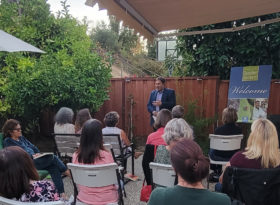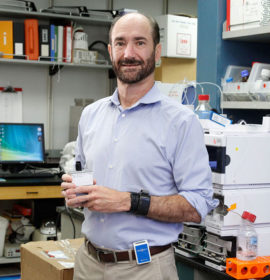BAL Happenings Series

Dr. Steven Harris, a physician specializing in Lyme at Pacific Frontier Medical, was guest speaker as part of our Distinguished Speaker Series. His presentation on the complexity of tick-borne diseases is transcribed below to share his invaluable insights into novel treatment options for those living with chronic/persistent Lyme and other intractable infections that severely curtail patients’ quality of life, bringing hope and restoring health to many. Note: This transcribed presentation has been edited for clarity.
What is “Precision Medicine”?
“The concept of precision medicine, which is a growing area, is where we look at an individual and try to create a tailored plan for that person. I think many doctors wish that we could have a ‘cookbook’ approach to medicine that would work for our patients. But unfortunately, that approach doesn’t work. Luckily, here in the San Francisco Bay Area, there are doctors offering precision medicine including Dr. Sunjya Schweig in Berkeley, Dr. Christine Green, with us at Pacific Frontier Medical, and Dr. Eric Gordon, at Gordon Medical Associates in Marin and others. And thankfully, we have Stanford and UCSF (our local medical centers) that we work peripherally with. In addition, the Open Medicine Foundation is making great strides in understanding illness and Dr. Mike Snyder’s group at Stanford who are working on multi omics for chronic fatigue that track an individual patient’s data.

“These doctors are working in their own fields, not necessarily just tick-borne diseases, but our work overlaps. For example, the Snyder Lab multi-omic study involves genomics, epigenomics, metabolomics, where they are looking at tons of data and assimilating a lot of this different data to try to create treatment plans that work for the individual, because of the fact that a ‘cookbook’ approach doesn’t work for this group of chronic complex patients. For example, we look at someone’s multi-ome and the parts that make them up, including their microbiome, epigenome among many others, which is becoming a bigger and more exciting field. One of the practical aspects we try to determine is how to address an individual’s level of inflammation, the diversity of their personal bacterial flora, and how to help compensate for any deficiencies—or over abundances—that help contribute to disease.



